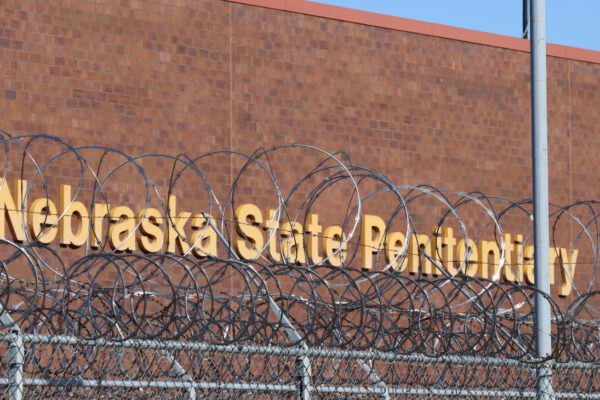OMAHA, Neb. – Today, a coalition of legal partners working to protect the rights of people incarcerated in Nebraska’s overcrowded corrections system filed an emergency motion in their federal lawsuit Sabata v. Frakes, requesting that the Court require the Nebraska Department of Correctional Services (NDCS) to provide its plan for prevention, management and treatment of COVID-19.
The move comes six days after the Department disclosed a staff member at the Nebraska State Penitentiary tested positive for the virus.
The motion requests immediate access to NDCS’ plans for management of the novel coronavirus in its facilities, including the pandemic plan and facility-specific quarantine plans referenced in a public statement by NDCS Director Scott Frakes. Although the statement said external stakeholders have been provided with the pandemic plan, this detailed information has not been shared with the public or the plaintiffs in this case.
“COVID-19 presents a grave threat to people in Nebraska’s prisons, where extreme overcrowding and chronic understaffing had already put the health and safety of everyone in these facilities at risk,” said David Fathi, lead counsel on the case and director of the ACLU National Prison Project. “Our emergency motion is a critical step toward holding the state accountable to its constitutional and moral obligations to protect people in custody. From the information we have, we have good reason to believe both action and planning do not meet the urgency of this public health crisis.”
ACLU of Nebraska Legal Director Adam Sipple says NDCS’ refusal to provide its pandemic plan raises concerns about the quality and extent of the plan, adding that an outbreak risks the safety of people who are incarcerated, corrections staff, their families and people in the community.
“Dangerous conditions in our overcrowded prisons existed long before COVID-19, which threatens to make the situation even worse. The Department of Correctional Services needs to demonstrate they are following the advice of public health officials and fully prepared to prevent and manage an outbreak.”
"In a moment where protecting public health is the highest priority, Nebraska state leaders must use every tool at their disposal to get ahead of the COVID-19 crisis and protect the lives of all Nebraskans, including people who are incarcerated and NDCS staff and their families. Failing to do so would go against Nebraska's values to protect our people and our communities," said Robert McEwen, Legal Director of Nebraska Appleseed.
The federal lawsuit remains awaiting a determination on overall class certification and two subclass certifications. Oral arguments took place in January. A grant of class certification to either subclass or the case as a whole would expand the possible impact of the case’s eventual resolution.
Partners include the ACLU of Nebraska, the ACLU National Prison Project, Nebraska Appleseed, the National Association of the Deaf, and the law firms DLA Piper and Rosen Bien Galvan & Grunfeld LLP.
Nebraska has one of the most overcrowded prison systems in the nation. As of NDCS’ latest quarterly report, facilities were at nearly 160% of design capacity, with one facility at more than 340% of design capacity. On July 1, a 2015 law passed unanimously by the Nebraska Legislature will require Gov. Pete Ricketts to declare an overcrowding emergency, a move that is meant to begin the process of reducing the prison population to 140% of design capacity.
Stay Informed
Sign up to be the first to hear about how to take action.
By completing this form, I agree to receive occasional emails per the terms of the ACLU’s privacy statement.
By completing this form, I agree to receive occasional emails per the terms of the ACLU’s privacy statement.

